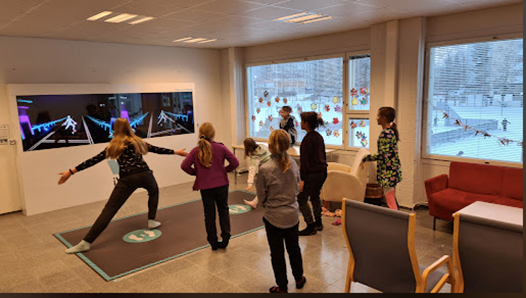Exploring Educational Exergames in Wellbeing Education: A Study Finnish Primary School
DOI:
https://doi.org/10.17083/ijsg.v12i1.869Keywords:
exergames, well-being education, self-determination theory, iWall, game selection, difficulty level, collaborative modeAbstract
Integrating exergames into well-being education has garnered substantial attention for promoting physical wellness. This study focused on assessing student preferences in exergames, particularly examining variables such as game selection, difficulty level, and collaborative mode. Furthermore, we scrutinized play duration across these variables to gain an in-depth understanding. Our exploration was guided by self-determination theory, centering on autonomy, competence, and relatedness concepts. Conducted within a primary school in Jyväskylä, Finland, our study utilized iWall, an Interactive Gaming Wall, to capture data on these variables, amassing 1707 data points from student frequency log data. Analysis of game frequency delineates game preferences emphasizing physical endurance, rhythmic coordination, and multiplayer engagement. Correlation analyses illuminate the dynamic interaction between game types and difficulty levels, elucidating the connection between gaming challenges and student choices. Moreover, examining play duration underscores how game genres significantly impact gameplay duration, emphasizing the need for diversified cognitive and physical challenges in exergame design. These findings are anticipated to offer insights into future exergame development for well-being education, drawing from a detailed understanding of student preferences established in this study.

Downloads
Published
Issue
Section
License
Copyright (c) 2025 Jukka Sinnemäki, Fadhlan Muchlas Abrori, Theodosia Prodromou, Zsolt Lavicza, Kristof Fenyvesi, Daniel H. Jarvis

This work is licensed under a Creative Commons Attribution-NonCommercial-NoDerivatives 4.0 International License.
IJSG copyright information is provided here.